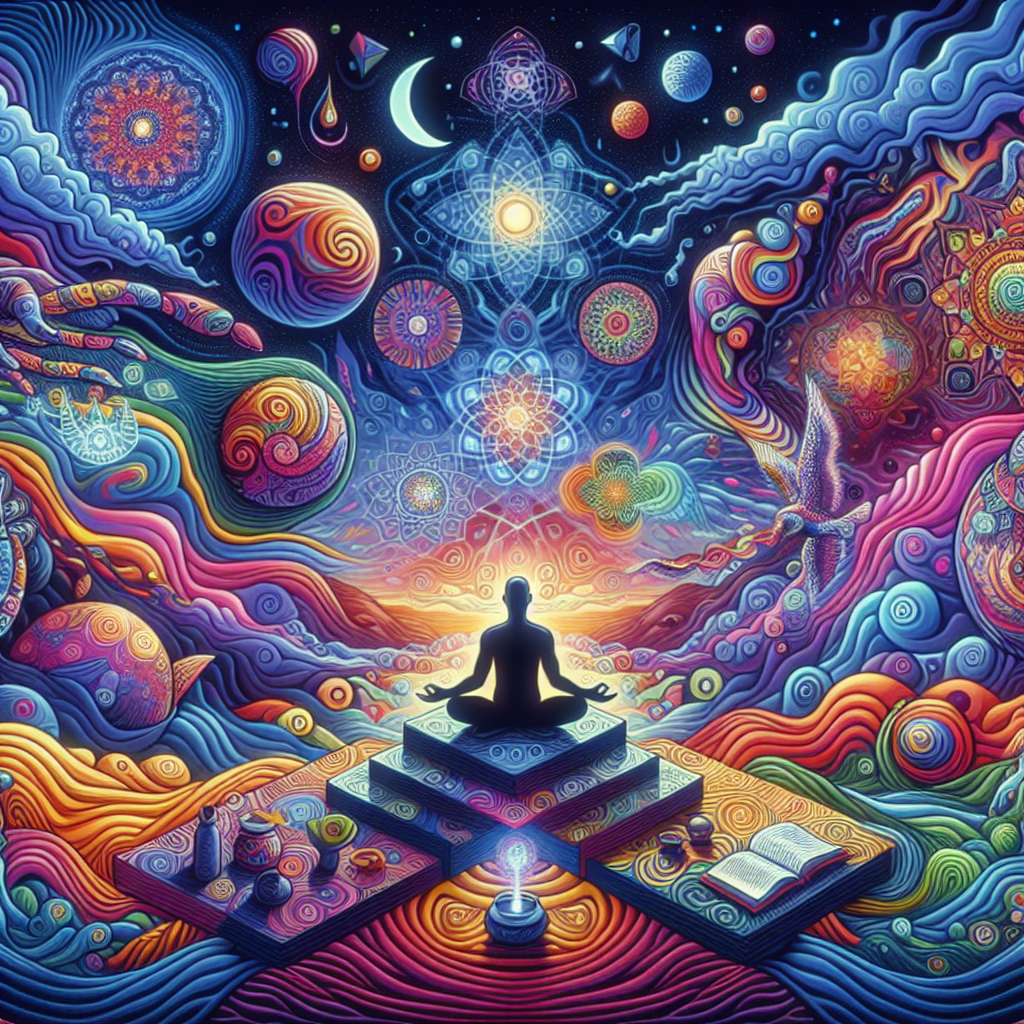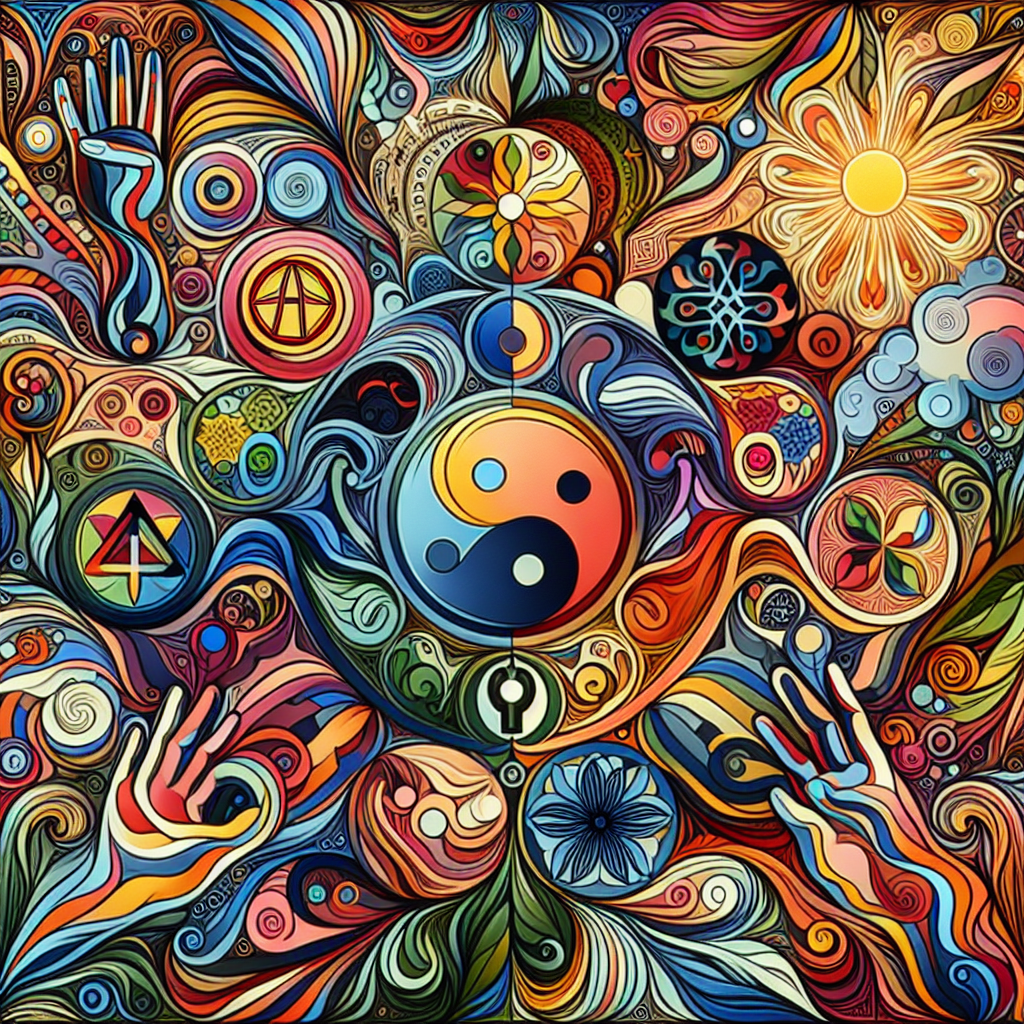The Role of Psychedelics in Holistic Well-Being

Discover the transformative role of psychedelics in holistic well-being. Uncover the potential benefits and understand the science behind it. Start your journey towards a more vibrant and vital life today. Learn more.
Exploring the Impact of Psychedelics on Emotional and Mental Health
Psychedelics, once relegated to the fringes of society, are now experiencing a renaissance in the realm of mental health and holistic well-being. These substances, which include LSD, psilocybin (found in magic mushrooms), and DMT, have been the subject of numerous studies in recent years. The findings suggest that, when used responsibly and under professional supervision, psychedelics can have profound effects on emotional and mental health.
Psychedelics work by disrupting the usual patterns of brain activity, allowing for new connections and perspectives to form. This can lead to profound shifts in consciousness, often described as mystical or spiritual experiences. These experiences can provide individuals with a new perspective on their lives, helping them to confront and resolve deep-seated emotional issues.
One of the most promising areas of research is the use of psychedelics in treating mental health disorders such as depression, anxiety, and post-traumatic stress disorder (PTSD). Traditional treatments for these conditions often involve medication and therapy, but these approaches do not work for everyone. Psychedelics offer a different approach, one that can lead to significant and lasting improvements in mental health.
For instance, a study published in the Journal of Psychopharmacology found that a single dose of psilocybin, combined with psychotherapy, led to significant improvements in emotional well-being and life satisfaction among patients with life-threatening cancer. These improvements were still evident six months after the treatment, suggesting that the benefits of psychedelics can be long-lasting.
Another study, published in the American Journal of Psychiatry, found that MDMA-assisted psychotherapy led to significant reductions in PTSD symptoms. The participants in the study had previously not responded to traditional treatments, highlighting the potential of psychedelics to help those who are struggling with severe mental health issues.
However, it’s important to note that the use of psychedelics in mental health treatment is not about chasing a quick fix or a magical cure. Instead, it’s about facilitating deep, transformative experiences that can help individuals confront and resolve their emotional issues. This often involves a combination of psychedelic use and psychotherapy, with the psychedelic serving as a tool to facilitate the therapeutic process.
Moreover, the use of psychedelics should always be done under the supervision of a trained professional. These substances can lead to intense and sometimes challenging experiences, and it’s crucial to have the right support in place to navigate these experiences safely.
In conclusion, the role of psychedelics in holistic well-being is becoming increasingly recognized. These substances have the potential to facilitate profound shifts in consciousness, leading to significant improvements in emotional and mental health. However, their use should always be approached with caution and under professional supervision. As research continues to explore the potential of these substances, it’s likely that we will see them playing an increasingly important role in the field of mental health and holistic well-being.
The Role of Psychedelics in Enhancing Mind-Body Connection

The role of psychedelics in holistic well-being is a topic that has been gaining significant attention in recent years. This is largely due to a growing body of research suggesting that these substances, when used responsibly and under the guidance of a trained professional, can have profound effects on mental health and overall well-being. One of the most intriguing aspects of this research is the potential role of psychedelics in enhancing the mind-body connection, a fundamental aspect of holistic health.
The mind-body connection refers to the relationship between our mental and physical health. It is a concept that has been central to holistic health practices for centuries, with the understanding that our thoughts, feelings, beliefs, and attitudes can positively or negatively affect our biological functioning. Conversely, what we do with our physical body—what we eat, how much we exercise, even our posture—can impact our mental state. This interconnection is something that modern medicine is increasingly recognizing as crucial to overall health.
Psychedelics, substances that alter perception and mood, appear to have a unique ability to enhance this mind-body connection. This is largely due to their ability to induce a state of heightened awareness and introspection, allowing individuals to gain a deeper understanding of their internal processes. This heightened state of consciousness can lead to a greater sense of self-awareness and self-understanding, which in turn can foster a stronger connection between the mind and body.
For instance, consider the use of psilocybin, a naturally occurring psychedelic compound found in certain types of mushrooms. Research has shown that psilocybin can induce profound changes in consciousness, leading to experiences of unity, interconnectedness, and a dissolution of the self-other boundary. These experiences can lead to lasting changes in attitudes and behaviors related to health and well-being, including increased openness, optimism, and a greater sense of connection to the natural world.
Moreover, psychedelics like LSD and ayahuasca have been found to facilitate experiences of ego dissolution, a state in which the usual boundaries between the self and the world dissolve. This can lead to a sense of unity and interconnectedness with all things, a perspective that can profoundly shift one’s relationship to their body and their health. In this state, individuals often report a heightened sense of being in their body, a greater awareness of their physical health, and a renewed commitment to taking care of their body.
Furthermore, the use of psychedelics in a therapeutic context can help individuals confront and resolve psychological issues that may be impacting their physical health. For example, research has shown that MDMA-assisted psychotherapy can be highly effective in treating post-traumatic stress disorder (PTSD), a condition that can have significant physical health consequences.
In conclusion, while the use of psychedelics is not without risks and should always be undertaken with caution and under the guidance of a trained professional, the potential benefits to holistic well-being are significant. By enhancing the mind-body connection, these substances can help individuals gain a deeper understanding of their health, foster a greater sense of self-care, and ultimately contribute to a more holistic sense of well-being. As research in this area continues to evolve, it is likely that the role of psychedelics in holistic health will become increasingly recognized and understood.
Psychedelics and Spirituality: A New Approach to Holistic Well-Being
The role of psychedelics in holistic well-being is a topic that has been gaining significant attention in recent years. This is largely due to a growing body of research suggesting that these substances, when used responsibly and under the guidance of a trained professional, can have profound effects on mental health and spiritual growth. This new approach to holistic well-being, which combines the use of psychedelics with traditional therapeutic techniques, is reshaping our understanding of the human mind and its potential for healing and transformation.
Psychedelics, such as psilocybin (found in magic mushrooms), LSD, and ayahuasca, have been used for centuries by various cultures around the world for spiritual and healing purposes. These substances are known for their ability to induce altered states of consciousness, during which users often report experiencing profound insights, feelings of interconnectedness, and a heightened sense of empathy and compassion. These experiences can lead to significant shifts in perspective and behavior, which can have lasting positive effects on mental health and overall well-being.
In recent years, scientific research has begun to explore the potential therapeutic benefits of these substances. Studies have shown that psychedelics can be effective in treating a range of mental health conditions, including depression, anxiety, post-traumatic stress disorder (PTSD), and addiction. They have also been found to promote psychological flexibility, enhance creativity, and foster a greater sense of purpose and meaning in life.
Moreover, the use of psychedelics in a therapeutic context often involves a spiritual or mystical component. Many users report experiences of ego dissolution, a sense of unity with the universe, and encounters with divine or transcendent realities. These experiences can lead to a deepened sense of spirituality, which can play a crucial role in promoting mental health and well-being.
The integration of psychedelics into a holistic approach to well-being represents a significant shift in our understanding of mental health. Rather than focusing solely on the alleviation of symptoms, this approach emphasizes the importance of personal growth, self-discovery, and spiritual development. It recognizes that mental health is not merely the absence of illness, but a state of overall well-being that encompasses physical, mental, emotional, and spiritual dimensions.
However, it’s important to note that the use of psychedelics is not without risks. These substances can induce intense and sometimes distressing experiences, and their use should always be supervised by a trained professional. Furthermore, they are not a panacea for all mental health issues, and their use should be considered as part of a broader therapeutic approach that includes traditional forms of therapy and lifestyle changes.
In conclusion, the role of psychedelics in holistic well-being is a promising area of research that is reshaping our understanding of mental health and spiritual growth. These substances have the potential to facilitate profound transformations in consciousness, which can lead to lasting improvements in mental health and overall well-being. However, their use should always be approached with caution and under the guidance of a trained professional. As we continue to explore the potential of these powerful substances, it’s clear that they have much to offer in our quest for holistic well-being.